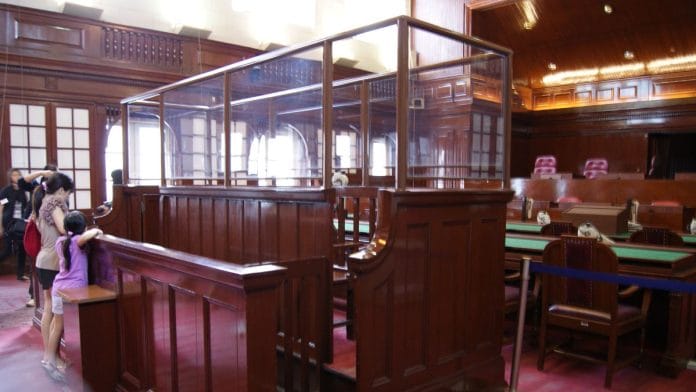New Delhi: The Court of Appeal in Singapore, equivalent to the Supreme Court of India, has upheld the invalidation of an arbitral award delivered by a three-member tribunal headed by former Chief Justice of India Dipak Misra, after finding that 47 percent of its contents were verbatim from two related, but different arbitration proceedings.
The other two arbitrations were incidentally heard and decided by the Justice Misra-led tribunal. However, the co-arbitrators in the parallel arbitrations were different from the ones who sat with Justice Misra in the one that went up to the Singapore Court of Appeal.
A bench of Chief Justice Sundaresh Menon and Steven Chong observed that 212 of the 451 paragraphs were copied from the other arbitral awards and that this approach was in breach of natural justice, having several implications.
To use previous awards as templates created a strong appearance of prejudgement and bias, the court held, adding that extensive copying raised suspicion that the tribunal had not truly considered the unique aspects of the present case on its merits.
The case was related to a dispute between a special purpose vehicle managing freight corridors in India and a consortium of three companies involved in infrastructure projects. The consortium was awarded the tender in August 2015 following a contract entered between the two parties. The agreement included a clause that designated Singapore as the seat of arbitration.
The differences emerged over a 2017 Indian government notification that increased minimum wages payable to workmen in India. The point of contention was whether the consortium is entitled to additional payments under their contract.
When the parties failed to reach an amicable resolution, the matter went to arbitration in Singapore under the International Chamber of Commerce (ICC) rules. The consortium commenced the arbitration in December 2021.
Former chief justice of Madhya Pradesh High Court Krishn Kumar Lahoti and former chief justice of the Jammu & Kashmir High Court Justice Gita Mittal were nominated as arbitrators by the two parties. They in turn appointed Justice Misra as president of the tribunal. In November 2023, the tribunal ruled in favour of the consortium.
The award was challenged before the Singapore High Court on the ground the tribunal had copied extensively from the prior awards involving Justice Misra as the presiding arbitrator. The high court accepted the arguments and set aside the award. It held that the tribunal had failed to make an independent assessment as some portions referenced submissions made in prior arbitration and not the present one. This, it concluded, showed bias, as the tribunal had relied upon old arbitral awards, instead of considering the case afresh.
Agreeing with the high court’s decision, the Court of Appeal observed: “That is simply not the case here, where not only was there no possibility of the parties addressing the points raised or conclusions reached in the separate proceedings, but portions from the Parallel Awards were reproduced in the Award, without even being adjusted for differences in the arguments made or in the terms of the applicable contracts.”
Copying from previous awards gave rise to reasonable suspicion that the tribunal had not “truly considered the unique aspects of this case on its merits,” the Court of Appeal said, adding “integrity of the decision-making process had been compromised”.
By drawing from previous awards, the tribunal in the present case denied a fair hearing as the parties had no access to the materials referenced in the judgement.
“That material formed such a pervasive part of the Award that it simply could not be overlooked. It was plain that it was neither contemplated nor agreed to by the parties that the Award could be prepared by such a process. For these reasons, we again agree with the judge that there had been a breach of the fair hearing rule,” the court said.
Since the president was the common factor in the present and the earlier tribunals, the court opined that Justice Misra was the only arbitrator who had knowledge of the parallel arbitration, and this placed the co-arbitrators in an unequal position, compromising the decision-making process.
The unequal access to information undermined the fundamental expectation that all arbitrators will have equal ability to influence the outcome of an arbitration proceeding. This, the court held, has damaged the integrity of the arbitral process.
(Edited by Gitanjali Das)
Also Read: HC allows survivor of alleged marital rape to terminate pregnancy — ‘reminder of trauma, agony’






